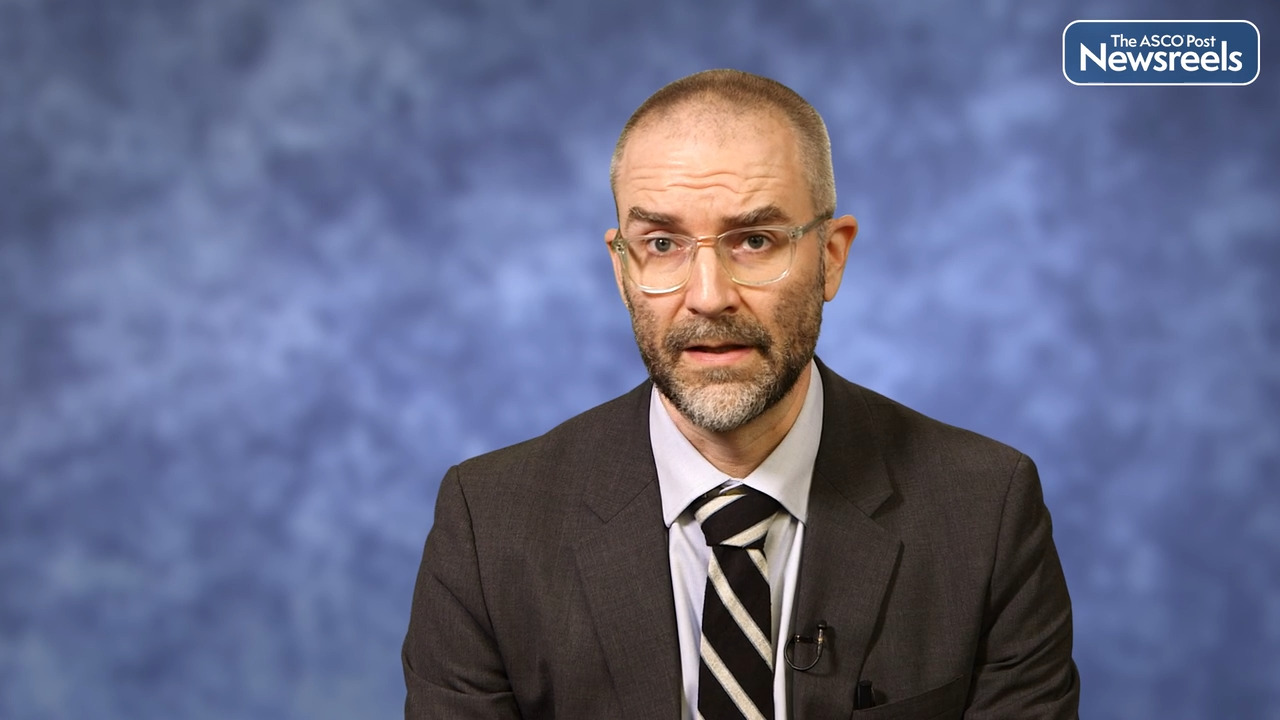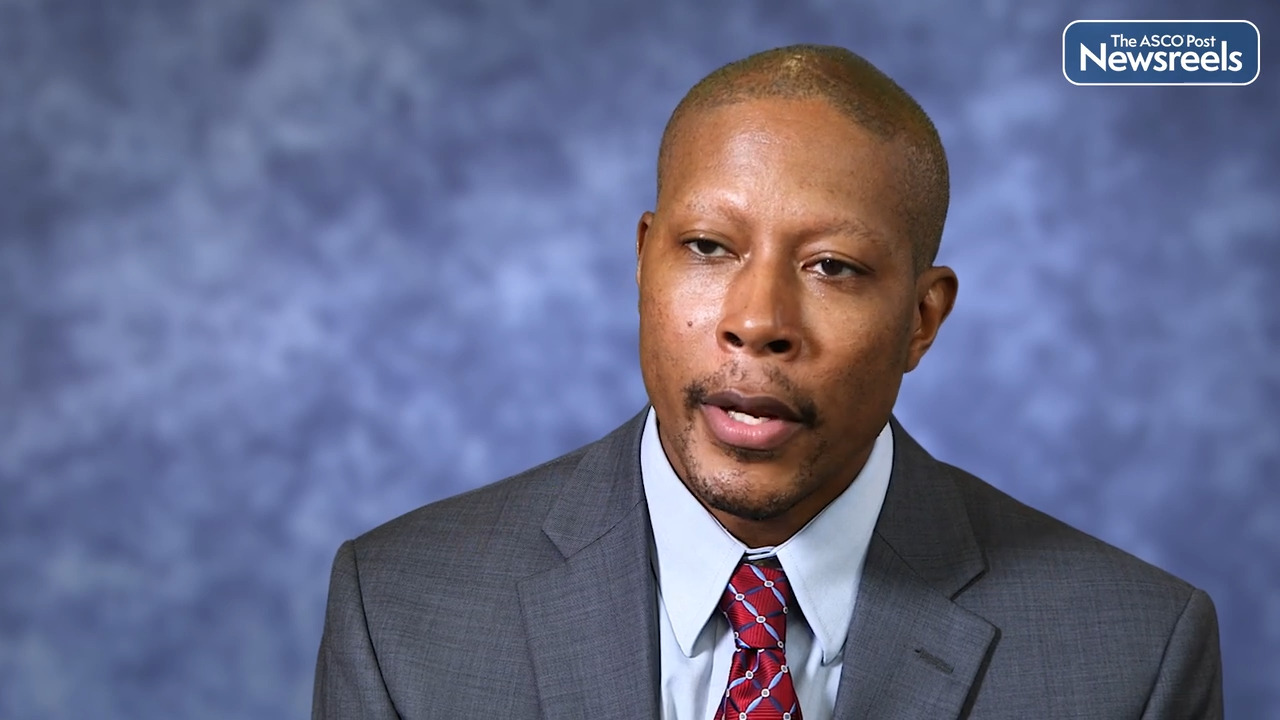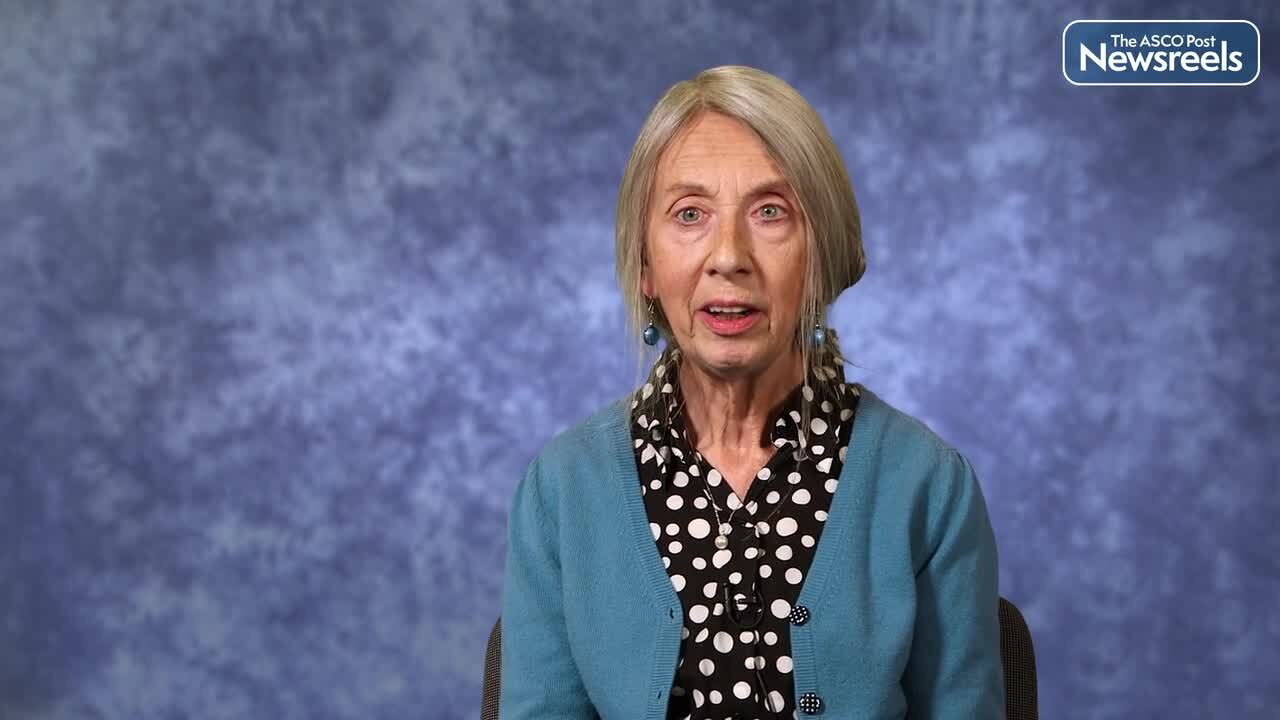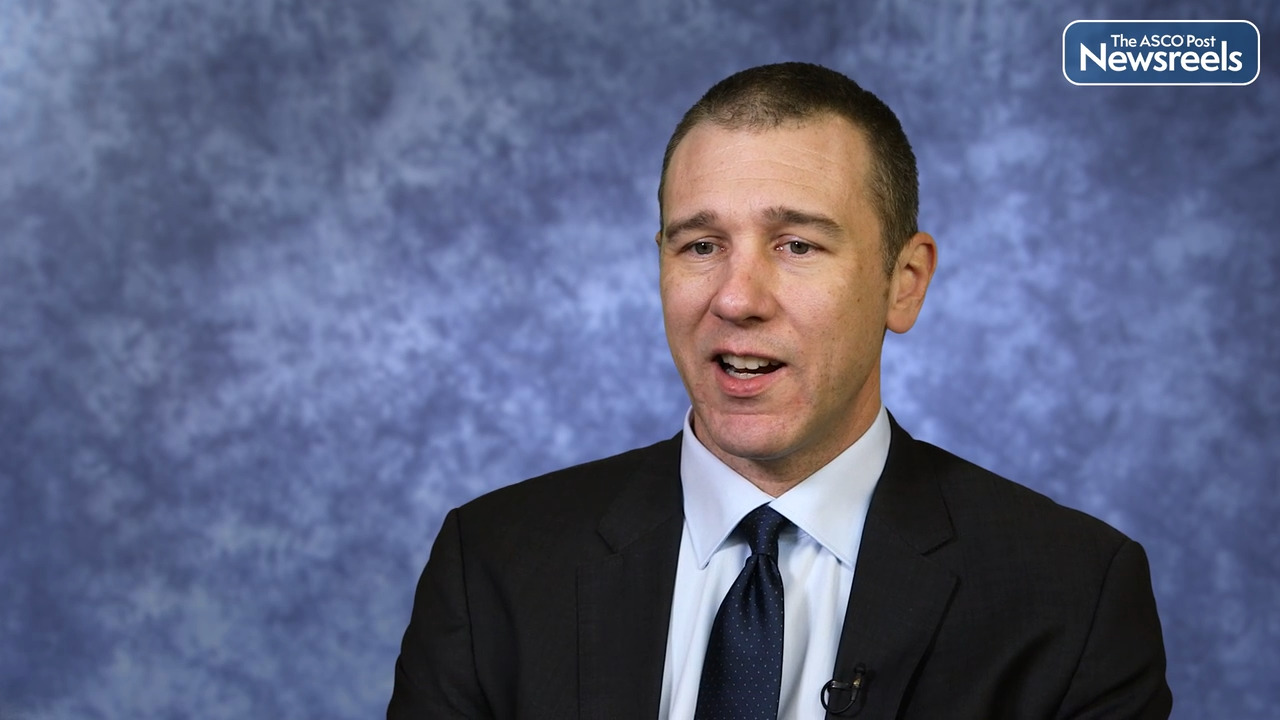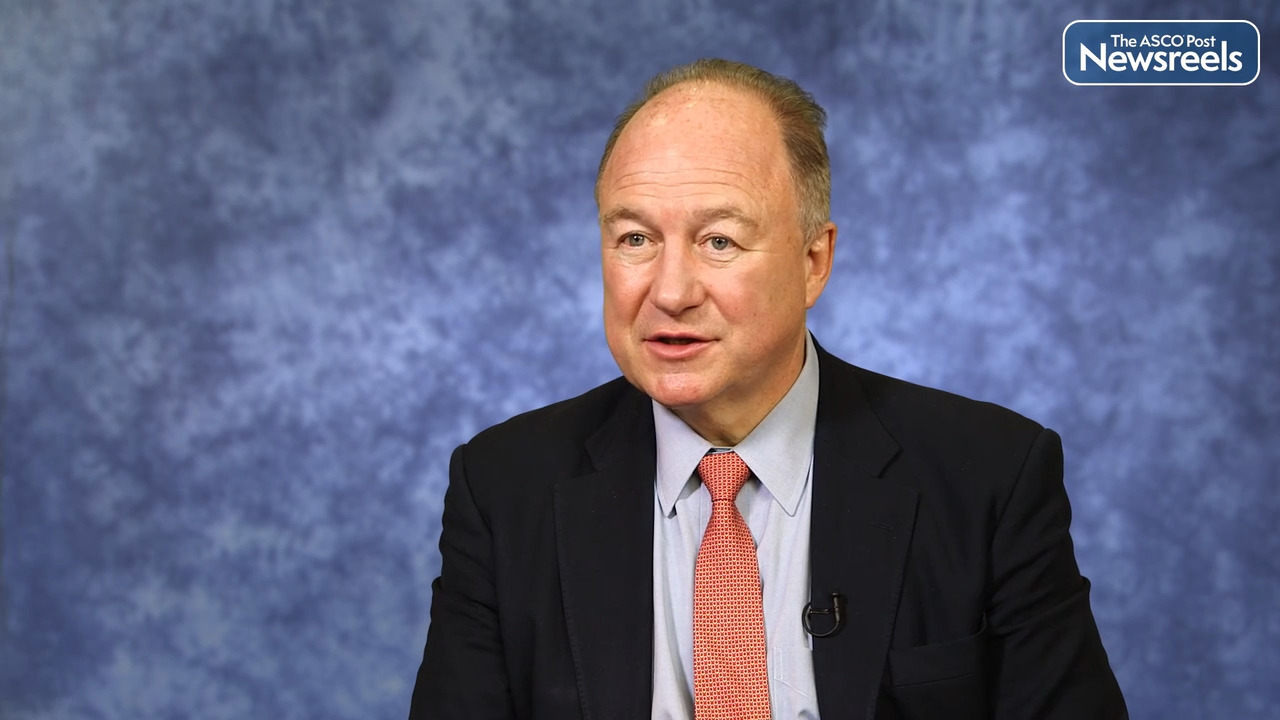Jia Ruan, MD, PhD, on Mantle Cell Lymphoma: Phase II Findings on Acalabrutinib/Lenalidomide/Rituximab
2022 ASH Annual Meeting and Exposition
Jia Ruan, MD, PhD, of Meyer Cancer Center, Weill Cornell Medicine, and NewYork-Presbyterian Hospital, discusses trial results demonstrating that the triple chemotherapy-free combination of acalabrutinib, lenalidomide, and rituximab is well tolerated, highly effective, and produces high rates of minimal residual disease (MRD)-negative complete response as an initial treatment for patients with mantle cell lymphoma, including those with TP53 mutations. Real-time MRD analysis may enable treatment de-escalation during maintenance to minimize toxicity, which warrants further evaluation. An expansion cohort of acalabrutinib/lenalidomide/obinutuzumab is being launched (Abstract 73).
Transcript
Disclaimer: This video transcript has not been proofread or edited and may contain errors.
The purpose of the study is to evaluate the safety and efficacy of this triplet combination. This triplet combination is built upon our previous report of doublet, which is lenalidomide plus rituximab. It has shown very high response rate and durability of the response, so we would like to see if the addition of a next-generation BTK inhibitor would continue to improve efficacy meanwhile, also maintain or improve safety profile. The other purpose of the study is to evaluate the minimal residual disease status, which is a molecular response with the next-generation sequencing-based assay platform clonoSEQ to evaluate the quality of the response in a real-time base because there's a previous study that suggests the quality of the response measured by minimal residual disease correlate with progression-free survival. So, therefore, we want to see how our triplet combination would improve the response quality measured by minimal residual disease.
And the last purpose of the study is to see, based on the MRD result, can we adjust our treatment strategy, particularly in terms of its intensity and duration, especially, in those patient who can achieve MRD-negative complete remission. The finding of our study has shown that this triplet combination is well tolerated with the expected side effects profile. In addition, it also seems to be highly effective measured by both the response rate using Lugano criteria, as well as minimal residual disease measured by clonoSEQ technology. So a hundred percent of our patients achieved response on study, and the Lugano complete remission rate was 83% measured by the clonoSEQ minimal residual disease, which we defined the threshold of less than one in a million.
About 50% of our patient achieve MRD-negative remission after 12 cycles of treatment, and 67% achieved molecular remission in peripheral blood after 12 cycles of treatment, and 83% after 24 cycles of treatment on the triplet. In addition, we have also evaluated the possibility and the feasibility of de-escalation of our treatment after 24 cycles of triplet therapy by discontinuing acalabrutinib and lenalidomide for those patients in molecular remission. We're very pleased with our preliminary findings and we hope that the results of the study could further contribute to providing options for a patient who's seeking chemotherapy, free combinations with highly effective biological combinations. Furthermore, we're hoping to explore the feasibility of limiting the chronic use of biological agents, but use MRD as a evaluation point to guide our treatment strategy.
Related Videos
The ASCO Post Staff
Joseph Schroers-Martin, MD, of Stanford University, discusses immunogenomic features reflecting divergent biology in posttransplant lymphoproliferative disorders (PTLD). These include evidence of mismatch repair defects in Epstein-Barr virus–positive PTLD, tumor microenvironment depletion, and MYC pathway enrichment in certain patients (Abstract 72).
The ASCO Post Staff
Tycel J. Phillips, MD, of the City of Hope National Medical Center, discusses data that showed fixed-duration glofitamab monotherapy induced high and durable complete response rates in patients with mantle cell lymphoma (MCL) who received obinutuzumab pretreatment. This is one of the largest data sets and longest follow-ups reported with a CD20/CD3 bispecific monoclonal antibody for patients with relapsed or refractory MCL (Abstract 74).
The ASCO Post Staff
Irene Roberts, MD, of Oxford’s Weatherall Institute of Molecular Medicine, discusses children with Down syndrome, who have a more than 100-fold increased risk of developing acute myeloid leukemia before their fourth birthday compared to children without Down syndrome. Their risk of acute lymphoblastic leukemia is also increased by around 30-fold. Dr. Roberts details current knowledge about the biologic and molecular basis of this relationship between leukemia and Down syndrome, the role of trisomy 21 in leukemogenesis, and the clinical implications of these findings.
The ASCO Post Staff
Paolo F. Caimi, MD, of the Taussig Cancer Institute, Cleveland Clinic, discusses new findings showing that patients with diffuse large B-cell lymphoma (DLBCL) who achieve a complete response after salvage therapy with rituximab, ifosfamide, carboplatin, and etoposide (R-ICE) can achieve long-term disease control, regardless of the time to relapse from initial therapy, particularly if they proceed to autologous stem cell transplant (ASCT). These results suggest that second-line chemotherapy followed by ASCT and/or CAR T-cell therapy for chemosensitive and chemorefractory patients may maximize patient outcomes, regardless of time to relapse (Abstract 156).
The ASCO Post Staff
Paul G. Richardson, MD, of the Dana-Farber Cancer Institute, discusses preliminary results from the dose-expansion phase of the CC-92480-MM-001 Trial, which showed promising efficacy in patients with relapsed and refractory multiple myeloma, including those with prior BCMA-targeted therapies. Patients in these two groups had an overall response rate of 40% and 50%, respectively. The results support the development of mezigdomide, currently being evaluated in combination with standard therapies in multiple myeloma as part of a large, ongoing phase I/II trial (NCT03989414) and planned phase III studies (Abstract 568).
